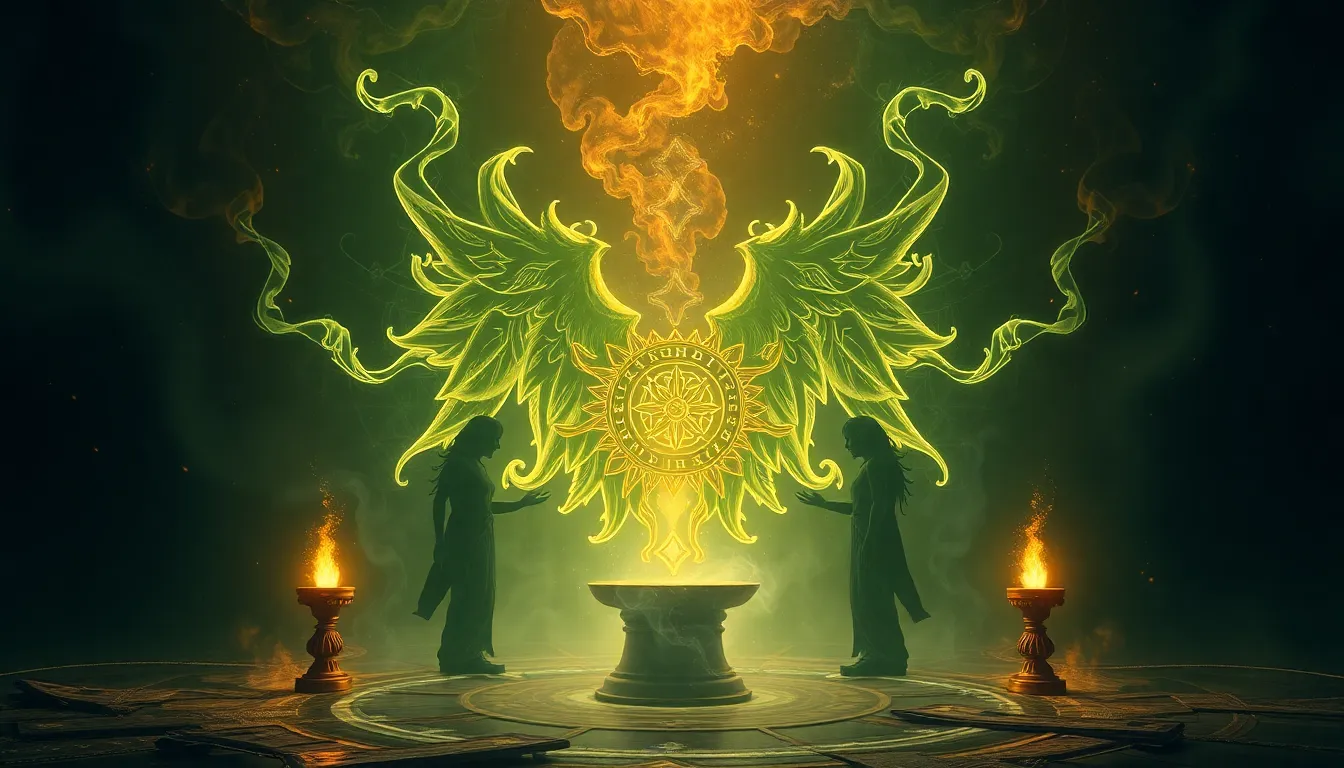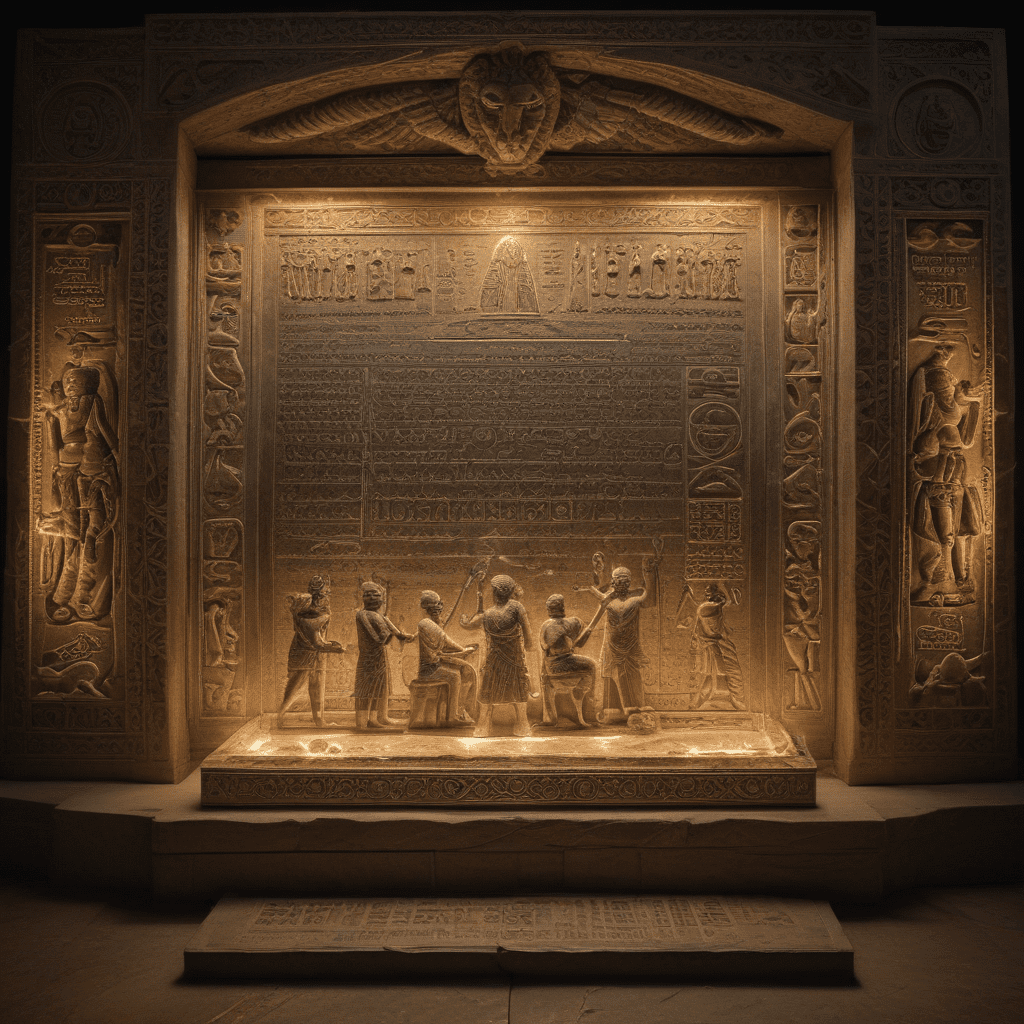The Mythical Alchemy: Transformations That Transcend Reality
I. Introduction to Alchemy: A Historical Overview
Alchemy, often seen as a precursor to modern chemistry, has a rich history that spans across various cultures and epochs. Historically, it can be defined as a philosophical and proto-scientific tradition aimed at the transformation of matter, particularly in the quest for the Philosopher’s Stone, which was believed to turn base metals into gold and grant immortality.
The evolution of alchemical practices can be traced from ancient Egypt, where it was closely associated with mysticism and the divine, through Greco-Roman traditions that emphasized empirical research, to medieval alchemists in Europe who sought not just material transformation but also spiritual enlightenment. Alchemical philosophy profoundly influenced the scientific revolution, serving as a bridge between spirituality and rational inquiry.
At the core of alchemical belief is the concept of transformation, not only of physical substances but also of the self. This transformative philosophy reflects a deeper understanding of existence, suggesting that one can transcend the mundane and achieve a state of enlightenment.
II. The Philosophical Foundations of Alchemy
Alchemy is underpinned by a rich philosophical framework that includes the four classical elements: earth, water, air, and fire. Each element symbolizes different qualities and states of being:
- Earth: Stability and materiality
- Water: Emotion and intuition
- Air: Intellect and communication
- Fire: Transformation and energy
Central to alchemical thought is the Philosopher’s Stone, a legendary substance that symbolizes the ultimate achievement of transformation. It represents not only the transmutation of metals but also the perfection of the self, embodying the union of opposites and the attainment of wisdom.
Interestingly, alchemy laid the groundwork for modern science. The alchemical method of experimentation and observation paved the way for the scientific method, leading to significant advancements in chemistry and pharmacology.
III. Mythical Creatures and Alchemical Symbolism
Alchemy is rich with mythical creatures that symbolize various aspects of transformation:
- The Dragon: Often representing chaos and the primal forces of nature, the dragon’s defeat in alchemical texts symbolizes the mastery over one’s fears and the attainment of spiritual insight.
- The Phoenix: A quintessential symbol of rebirth and immortality, the phoenix’s cycle of death and resurrection illustrates the alchemical process of purification and renewal.
- The Unicorn: Embodying purity and innocence, the unicorn is often sought in alchemical pursuits as a symbol of the quest for spiritual enlightenment and the union of the conscious and unconscious mind.
IV. The Role of Mythology in Alchemical Transformation
The interplay between mythology and alchemy reveals a rich tapestry of stories that underscore the transformative journey. Different cultures have their own alchemical myths that often share similar themes:
- Creation myths that illustrate the transformation of chaos into order.
- Heroic journeys that depict the trials and tribulations leading to personal enlightenment.
- Legends of divine intervention that encourage seekers to pursue their inner truths.
In literature, the intersection of alchemy and mythology has led to profound narratives that inspire personal and societal transformations. Works like Dante’s “Divine Comedy” and Milton’s “Paradise Lost” explore these themes, revealing the moral and ethical dimensions of transformation.
V. Alchemical Processes and Their Metaphysical Implications
The alchemical process is often described in stages, each representing a step in the journey of transformation:
- Calcination: The breaking down of the ego.
- Dissolution: Letting go of old beliefs.
- Separation: Distinguishing what is essential from what is not.
- Conjunction: Integrating the opposites.
- Fermentation: Spiritual awakening.
- Distillation: Refinement and purification.
- Coagulation: The manifestation of the perfected self.
These stages illustrate the profound relationship between physical and spiritual transformation, emphasizing that the journey of inner growth often mirrors external changes. Many modern self-help philosophies draw from these alchemical principles, advocating for personal development through introspection and transformation.
VI. Alchemy in Art and Literature
The influence of alchemy extends into art and literature, particularly during the Renaissance, when artists like Hieronymus Bosch and Albrecht Dürer incorporated alchemical themes into their works. The intricate symbolism in their paintings often reflects the alchemical quest for knowledge and transformation.
In classic literature, alchemical themes are prevalent, most notably in Goethe’s “Faust,” where the protagonist’s struggle embodies the alchemical pursuit of deeper understanding and ultimate redemption. Modern interpretations continue to explore these themes, often recontextualizing alchemical symbolism in contemporary media, including films, novels, and visual arts.
VII. Psychological Perspectives on Alchemical Transformation
Carl Jung’s exploration of alchemy revealed its psychological dimensions, viewing it as a metaphor for personal growth and individuation. Jung believed that the alchemical process mirrored the journey of the psyche, where the transformation of base materials into gold symbolized the emergence of the Self.
Alchemy serves as a powerful metaphor for personal evolution, illustrating how individuals can confront their shadows and integrate disparate parts of their psyche. The therapeutic potential of alchemical practices is recognized in various psychological approaches, facilitating healing and self-discovery.
VIII. The Science Behind Alchemical Processes
Historically, alchemy contributed to the birth of modern chemistry. The systematic study of substances and their transformations laid the groundwork for scientific inquiry. Modern chemistry parallels many alchemical processes, such as the transformation of elements and compounds, reflecting the enduring legacy of alchemical thought.
Experimentation is at the heart of both alchemy and science, emphasizing the importance of observation and the pursuit of knowledge through trial and error. This shared ethos continues to inspire scientists and seekers alike.
IX. Contemporary Practices Inspired by Alchemical Traditions
Today, alchemical traditions have found new life in modern spiritual movements and practices. Many workshops and courses delve into alchemical philosophy, offering insights into personal development and spiritual growth.
The relevance of alchemy in today’s self-help and wellness industries is evident, as individuals seek transformative experiences that align with ancient wisdom. Practices such as meditation, yoga, and holistic healing often draw upon alchemical principles, encouraging a journey of self-discovery and transformation.
X. Conclusion: The Enduring Legacy
The legacy of alchemy endures, transcending the boundaries of time and culture. Its rich symbolism and philosophical foundations continue to inspire seekers on their transformative journeys. As we explore the mythical and metaphysical dimensions of alchemy, we uncover profound truths about ourselves and our potential for transformation.
In a world that often feels chaotic and fragmented, the alchemical quest for unity, understanding, and enlightenment remains a vital pursuit, reminding us that transformation is not only possible but essential for our growth and evolution.




